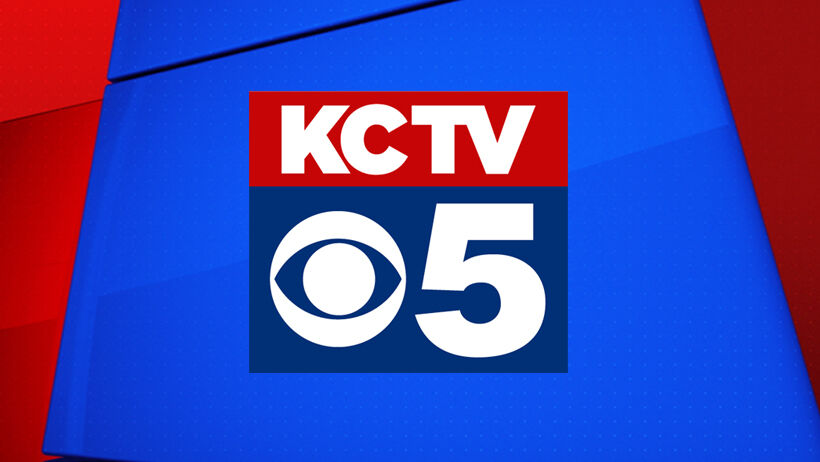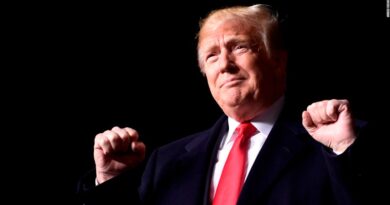Trump election fraud investigation in Georgia enters new phase with grand jury set to be seated

A criminal investigation into former President Donald Trump’s attempts to overturn the 2020 election results in Georgia is set to intensify this week, as a grand jury convenes, offering the local district attorney her first shot at seeking subpoenas for records and interviews.
Fulton County District Attorney Fani Willis made her investigative intentions clear with a round of letters to Georgia state officials in February, asking them to preserve documents relevant to election interference as she investigated potential state crimes including the solicitation of election fraud, conspiracy, and racketeering.
According to the letters, none of the Georgia officials are targets of the investigation.
“What I was doing, as a courtesy to people that I respect very much, is simply putting them on notice that when a grand jury convened, which would be in March, that they could expect to receive subpoenas,” Willis told MSNBC in February.
Two grand juries are set to convene in Fulton County on Thursday, opening a path for Willis’ next phase in her probe. A person familiar with the investigation said they are likely to rely heavily on subpoenas rather than voluntary requests for records and interviews, in part to establish a clear court record of their pursuit of evidence.
In the meantime, some officials in Georgia have already hired personal attorneys amid the fallout from Trump’s efforts to upend the election results.
While Willis’ investigation launched from the now-infamous call in which Trump pushed Georgia Secretary of State Brad Raffensperger to “find” him enough votes to win the state, it’s expected to stretch well beyond that single call.
“There may be nothing there,” said a person familiar with the investigation, “or it may be more extensive that we thought.”
Willis has said her investigation will expand past Trump’s call with Raffensperger to include any efforts to influence the election in Georgia.
She is also investigating a phone call between Trump loyalist Sen. Lindsey Graham and Raffensperger, the abrupt departure of Byung “BJay” Pak, the US attorney for the Northern District of Georgia, and the false allegations of election fraud Rudy Giuliani made before Georgia legislators.
“The way she goes about any cases, she starts at the top and she really dives into it. She follows every lead that she can and kind of exhausted in that way,” said Charlie Bailey, who previously worked closely with Willis in the Fulton district attorney’s office and is running for state attorney general in 2022.
Discerning Trump’s intent
The former President’s legal troubles began to mount in the wake of a stunning January 2 phone call. In the 62-minute call, Trump lambasted his fellow Republican for refusing to falsely say that Trump won the election in Georgia and repeatedly touted baseless claims of election fraud.
“The people of Georgia are angry, the people of the country are angry. And there’s nothing wrong with saying that, you know, um, that you’ve recalculated,” Trump said in one part of the call.
Raffensperger, who repeatedly pushed back on the call, responded, “Well, Mr. President, the challenge that you have is, the data you have is wrong.”
Trump pushed Raffensperger multiple times during the call to “find” votes to reverse his election loss, while floating unfounded theories about why he won, and pressuring Raffensperger to look for ways to change the count.
“All I want to do is this. I just want to find 11,780 votes, which is one more than we have. Because we won the state,” Trump said.
A person familiar with the investigation said Willis will not hesitate to dig into the details surrounding the call, even if Trump’s team tries to claim various types of privilege to shield the former President from investigative inquiries.
“Having a lawyer on a call is not a get out of jail free card,” a person familiar with the investigation said.
Trump’s requests during that call came after 18 attempted calls from the White House to the Georgia Secretary of State’s Office between the election and the January 2 phone call, according to a Georgia state official.
“The repeated calls sort of start to tell the story that this was not, again, an official trying to talk to another official about problems that he or she might see in an election,” Michael J. Moore, the former US attorney for the Middle District of Georgia between 2010 and 2015 under President Barack Obama, told CNN. “They paint a picture about intent and that’s an important element for every prosecutor.”
Bret Williams, a former prosecutor for the Northern District of Georgia US Attorney’s office, said the most serious crime that Trump is facing in Georgia is Criminal Solicitation to commit election fraud, a felony. But concluding a crime was committed could be “complicated” and boils to Trump’s intent.
“He might say, his lawyers might say, ‘No, no, no. He’s calling to complain. He’s Kvetching. He’s saying I got cheated,’ ” Williams said. Trump’s defense could be, “I’m not calling him to ask him to cheat for me, I’m calling him to ask him to undo the cheating,” Williams added.
A spokesman for Trump did not respond to a request for comment for this story. In a previous statement to CNN on February 9, Trump’s senior adviser Jason Miller said there was nothing “improper or untoward” about the call between Trump and Raffensperger.
“If Mr. Raffensperger didn’t want to receive calls about the election, he shouldn’t have run for secretary of state,” Miller said in the statement.
Georgia GOP drawn into probe
In the final days of the Trump administration, after numerous public attacks from Trump following the election, some members of the Secretary of State’s office retained attorneys out of fear the then-President could leverage resources for political retaliation, a source with the office told CNN.
And while Republican officials in Georgia have been eager to move beyond the drama of the election, they are expected to be drawn back into the investigation as Willis runs down the details surrounding the call with Raffensperger, as well as outreach from Trump and his GOP allies to other state officials
In addition to his call with Raffensperger, Trump also had contact with Georgia’s Attorney General Chris Carr and Georgia GOP Gov. Brian Kemp.
In a call with Kemp last year, Trump pushed the governor to convene a special session and convince state legislators to overturn then President-elect Joe Biden’s win in the state, a source familiar with the conversation told CNN. He also asked the Republican governor to order an audit of absentee ballot signatures.
Kemp explained that he did not have the authority to order such an audit and denied the request to call a special session, the source said.
Graham, Giuliani and other areas of inquiry
Willis has said she also has questions about Graham’s efforts in Georgia.
Graham, a South Carolina Republican, was chairman of the Senate Judiciary Committee when he called Raffensperger on November 13 and inquired whether Raffensperger could discard all mail-in ballots from counties that had shown higher rates of unmatched signatures, the Republican secretary of state told the Washington Post at the time. Graham has denied the assertions from Raffensperger, who has stood firm on his account.
Graham’s spokesman Kevin Bishop has said that accusations that the senator’s call was inappropriate were “ridiculous.”
“Senator Graham was asking about how the signature verification process worked,” Bishop said. “He never asked the Secretary of State to disqualify a ballot cast by anyone.”
Willis has also expressed interest in exploring testimony from Giuliani before Georgia state senators, in which Giuliani promoted unfounded theories about why Trump won Georgia and a handful of other states that Trump had, in reality, lost.
Giuliani told a room of mostly Republican lawmakers that Georgia’s voting machines could not be trusted, tens of thousands of absentee ballots were illegally cast and not properly counted, and that the legislature should appoint its own electors who supported Trump.
“It’s your responsibility if a false and fraudulent count is submitted to the United States government, and it is clear that the count you have right now is false,” Giuliani said during the hearing.
In a statement to CNN, Giuliani said “the law gives you a lot of leeway to view the case in the light most favorable to your client.” He added that any potential case against him “would be a travesty and fundamentally change the role of a lawyer and advocate. It’s clearly a vindictive position, not unusual for those of us who supported and support President Trump.”
Georgia State Law Professor Clark D. Cunningham said Giuliani’s claims may have violated the state’s false statements statue, a felony.
Cunningham says that Willis has all the elements of a “very persuasive” story to try to and convince the grand jury that there was a conspiracy to change Georgia’s election results.
“There are lots of different pieces and they’re different acts and different people involved,” Cunningham said. “Lawsuits all over the place, hoping to find a judge who would issue a temporary restraining order, asking a general assembly to intervene, of course raising all kinds of allegations of fraud, pressure threatening the Governor, threatening the Secretary of State.”
Willis has also said she will take a look at Pak’s surprise departure from his post as US attorney for the Northern District of Georgia in January. The move came after Trump appeared to refer to Pak as a “never-Trumper” in the call with Raffensperger.
“I find it particularly peculiar the way that he left and when he left,” Willis said in a February interview with the Associated Press.
While Willis wasted no time in launching her investigation into the former President, she said during the AP interview that she has no set timeline for completing her inquiry.
“I’m in no rush,” she said. “I think people think that I feel this immense pressure. I don’t.”
CNN’s Michael Warren contributed to this story.
*** This article has been archived for your research. The original version from KCTV Kansas City can be found here ***


